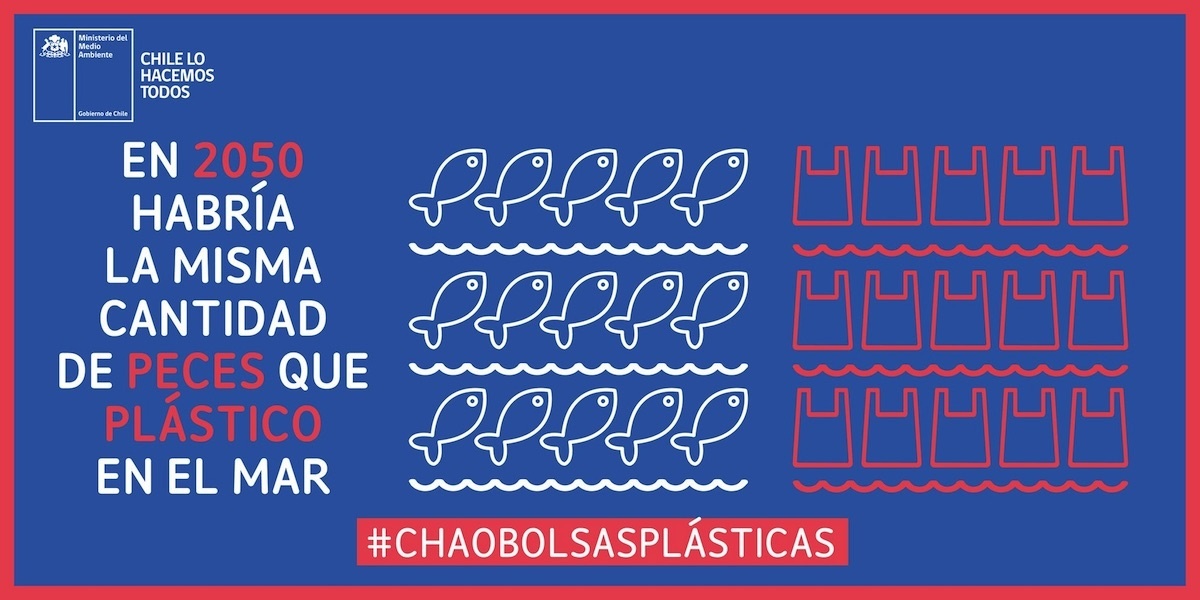

Chile’s Constitutional Court
ratified a bill that bans plastic bags across the country after rejecting an appeal from the plastics industry.
Last month, Chile’s Congress unanimously
approved the ban in order to protect the environment and especially the ocean. Shortly after, the Santiago-based Association of Industrial Plastics (Asipla) launched a legal challenge to overturn the legislation, saying it was unconstitutional.
On Tuesday, the court determined the legislation was in line with the constitution, thereby paving the way for Chile to become the first country in the Americas to prohibit retailers from handing out plastics bags.
“We are very pleased with the court’s decision, it was the last stage for the enactment of this law,” said environment minister Marcela Cubillos, according to
AFP.
In a
tweet, the Ministry of Environment noted that the court’s green light on the bag ban coincided with International Plastic Bag Free Day, which is observed on July 3.
¡Hoy celebramos! ??
En el Día Internacional Sin Bolsas Plásticas el Tribunal Constitucional ha dado luz verde a la ley #ChaoBolsasPlásticas que prohibe entrega de bolsas plásticas de comercio en todo Chile.+Info en https://t.co/GnpCBEqHmR pic.twitter.com/ALpHil8mIj
— Ministerio del Medio Ambiente (@MMAChile) July 3, 2018
Once the bill is enacted by President Sebastian Piñera’s government, businesses will have will have six months to adjust to the new rule. Smaller businesses will have a year to comply, AFP reported.
Chile’s move is not as extreme as it sounds. The vast majority (about 95 percent) of surveyed Chileans across all age groups approved of the plastic bag ban, according to the Ministry of Environment’s website. There are also 92 cities and towns that already have measures regulating the usage of plastic bags.
Chile uses more than 3.4 billon plastic bags annually, or roughly 200 bags per person per year, according to Asipla.
However,
about 97 percent of those plastic bags end up in landfills or in oceans, where they take centuries to degrade.
This is a landmark piece of legislation for both South and North America.
The Santiago Times noted that a number of states and municipalities in the U.S. and Canada have similar bans but none on the national level yet. But Costa Rica announced in August that it wants to be the first country in the world to ban all single-use plastics by 2021.
Elsewhere around the globe,
Rwanda and Kenya have enforced complete bans on plastic bags. In 2002, Bangladesh became the world’s first country to ban the items.
Meanwhile in Texas, the state’s top court ruled last month that cities cannot ban plastic bags.
Texas Supreme Court Rules Cities Cannot Ban Plastic Bags https://t.co/nmf9Ogpb5F @PlasticPollutes @Plastic_Bag_Ban
— EcoWatch (@EcoWatch) June 22, 2018

 233k
233k  41k
41k  Subscribe
Subscribe 